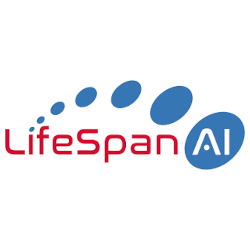
23 Mar 9 PhD and 2 Researcher Positions (f/m/d) in the Interdisciplinary DFG AI Research Unit
9 PhD and 2 researcher positions (f/m/d) in the Interdisciplinary DFG AI Research Unit
on Computer Science, Mathematics, Health Science, Epidemiology and Statistics
“Lifespan AI – From Longitudinal Data to Lifespan Inference in Health | DFG FOR 5347”
At University of Bremen and Leibniz Institute for Prevention Research and Epidemiology – BIPS up to 9 doctoral positions (salary scale TV-L E13 100%) for the areas (i) to (ix) and 2 research positions (salary scale TV-L E13 50%) for the areas (x) and (xi) are available for scientific qualification at the next possible date, limited to 36 months.
The time limitation is based on § 2 (1) WissZeitVG (Wissenschaftszeitvertragsgesetz, i.e. temporary science employment act). Therefore, candidates may only be considered who dispose of the respective scope of qualification periods according to § 2 (1) WissZeitVG.
Research Program
With its main focus on methods of artificial intelligence (AI) and tools that model, predict and explain the development of diseases over the life course, the research unit Lifespan AI will use high-dimensional, life-spanning data that will be assembled from longitudinal epidemiological studies and supplemented with biological, social, and lifestyle information. Here, fundamental AI research goes hand in hand with biostatistics, epidemiology and the integration of AI in health research.
Lifespan AI covers six projects grouped into three themes: Data and Methods (D), Models and Interpretation (M), and Inference and Causality (C) at the intersection of computer science, epidemiology and statistics. The six PhD projects concern: (i) D1 – Deep Integration of Health Data, (ii) D2 – Lifespan Predictions, (iii) M1 – Normalizing Flows for Lifespan Health Data, (iv) M2 – Lifespan Knowledge Representation, (v) C1 – Explainable AI across the Lifespan, and (vi) C2 – Causal Discovery across the Lifespan. Further three PhD intersection topics connect the themes, i.e. (vii) D1/M2 – Hybrid Universal Embeddings, (viii) M1/C1 – Model Interpretation, and (ix) D2/C2 – Design & Harmonization.
These projects are supported by a (x) discipline connector and a (xi) data steward.
We offer:
With cutting-edge laboratories and data infrastructure at BIPS, CSL Biosignals Lab, ZeTeM, and KKSB, Lifespan AI offers access to excellent facilities, data and computing infrastructure, attractive workplaces, diverse and responsible tasks, and a wide scope of advanced training options, and flexible working time models.
All scholars are supervised by an interdisciplinary team of at least two highly qualified principal investigators providing their complementary expertise, infrastructure, and networks. Scholars are encouraged to grow their skills and networks by visiting partner and other world-renowned institutions for extended research stays.
You Provide
Successful candidates should have completed their master studies (or complete them very soon) in computer science, (bio-)mathematics, (bio-)statistics, data science or related fields. Opportunities for qualification scholarships for candidates with other related backgrounds and/or study degrees are also available.
We expect:
- Above-average Master’s degree in computer science, mathematics, (bio-)statistics, data science or closely related field
- Advanced knowledge and proven track record in at least one of the following research areas: artificial intelligence, machine learning, signal processing, epidemiology, statistics
- Excellent programming skills (e.g. in Python, R, C++, Java or similar)
- Very good communication skills and the ability to work in a team
- Very good knowledge of the English language
The university is family-friendly, diverse and sees itself as an international university. We therefore welcome all applicants regardless of gender, nationality, ethnic and social origin, religion/belief, disability, age, sexual orientation and identity.
As the University of Bremen intends to increase the proportion of female employees in science, women are particularly encouraged to apply.
Disabled applicants will be given priority if their professional and personal qualifications are essentially the same
Application
Further information about the team, projects, and recruiting process of Lifespan AI can be found at lifespanAI.de.
Please follow the instructions on this website on how to submit your application (including your professional CV, certificates, and research interests) until March 31st, 2022.
Alternatively, you can send your application with the usual documents in written form to the spokesperson of the research group, Prof. Dr. Tanja Schultz, Faculty 3, Enrique-Schmidt- Straße 5, 28359 Bremen, by March 31st, 2023, quoting the reference number A343/22, or send it by e-mail to tanja.schultz@uni-bremen.de.
Please do not submit portfolios, only copies of your application documents, as these will not be returned and will be destroyed after the selection process has been completed.
A virtual assessment event will take place in April 2023.
Questions about the position will be answered by:
Prof. Dr. Tanja Schultz, Spokesperson of the Lifespan AI Research Group / University of Bremen / Faculty 3
Tel. 0421 218-64270


Sorry, the comment form is closed at this time.